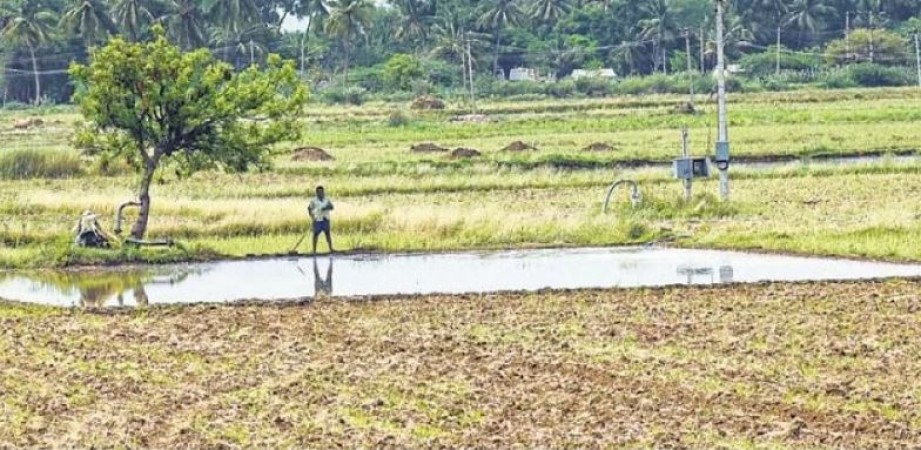
CHENNAI: After being approved by the governor, RN Ravi, on April 21, the Tamil Nadu Land Consolidation (for Special Projects) Act, 2023, went into effect on August 17. The Act aims to standardize the consolidation of public lands for significant projects and to control the exchange of properties containing waterbodies and the protection of those waterbodies.
The measure has been fiercely opposed by environmental groups, farmers' associations, and campaigners ever since the Assembly adopted it, and they are now in a rage demanding its immediate repeal. Additionally, they want to challenge this Act in front of the Madras High Court.
Revenue Minister KKSSR Ramachandran provided an explanation of the need for such laws when proposing the bill. According to him, the numerous executive orders and references to land in various laws cause delays and ambiguity in the consolidation of lands, which results in time and expense overruns and the loss of tax dollars. Farmers and environmental groups rejected the government's argument despite the fact that the bill aims to safeguard waterbodies.
In an interview with TNIE, PR Pandian, president of the coordination committee for the farmers' organizations, said: "August 17, the day the Land Consolidation Act went into effect, is a bad day for our farmers. Because this legislation is anti-farmer, we are engaging with farmers' unions and environmental groups before launching a significant movement against it.
Farmers have already begun a freedom struggle as a result of this legislation, and if it is not soon overturned, this protest will develop into a movement against the government.Farmers must take action to oppose the DMK administration, according to Pandian, who also noted that this legislation would be a significant topic for the upcoming Lok Sabha elections. "This Act is a dangerous one since it allows the government to hand away sizable land parcels, including water resources, to corporate houses under the pretense of industrial expansion. To contest this Act, we are also speaking with legal authorities, he added.
According to Sami Natarajan and PS Masilamani, general secretaries of the CPI and CPM-affiliated Tamil Nadu Vivasayigal Sangam, there are already a number of laws in place for land acquisition, and farmers must fight hard to receive compensation when the government buys their land. The state's waterbodies and marginal and underprivileged farmers' lands would not be in any way protected by the new legislation. Additionally, they were criticized for publishing this legislation's notification in the extraordinary gazette after receiving the governor's approval while ignoring the strong resistance from farmers. We urge the administration to suspend this law without applying its provisions, they continued.
The majority of the water resources are in danger of being privatized since the Act has already taken effect, according to attorney M. Vetriselvan of Poovulagin Nanbargal, a group for environmental issues. The community's rights regarding water resources are violated by this Act. Additionally, it infringes on the legal rights of regional organizations that possess water resources. The Constitution's Article 39 refers to local resources. The state government has a responsibility to make sure that everyone in society benefits from these local resources. This Act is unconstitutional because it violates the directive principles. We'll be arguing against this Act in court very soon.
According to Vetriselvan, a waterbody is not an isolated entity but rather is connected to agricultural or pastoral fields or serves as a water source for the local herd of cattle. Its eventual destruction will result from the neighboring areas' changing land uses and from leaving the waterbody alone. The Act plainly states that the DMK government is adopting the economic policies of the BJP, according to V Jeevakumar, a farmer from Bhoothalur in the Thanjavur district. It would be detrimental to our resources to enforce such laws. This legislation will eventually bring corruption to its peak. Additionally, this legislation demonstrates the dangerous path the DMK government is taking. This bill will have an impact on the Lok Sabha elections because it is detrimental to both farmers' and Tamil Nadues' wellbeing.
Bihar Completes Caste-Based Survey, Data Compilation Underway for Public Disclosure
India and Greece Strengthen Strategic Ties, Elevate Relations to New Heights
Indian Government Issues Advisory to Halt Betting and Gambling Advertisements During Sports Events